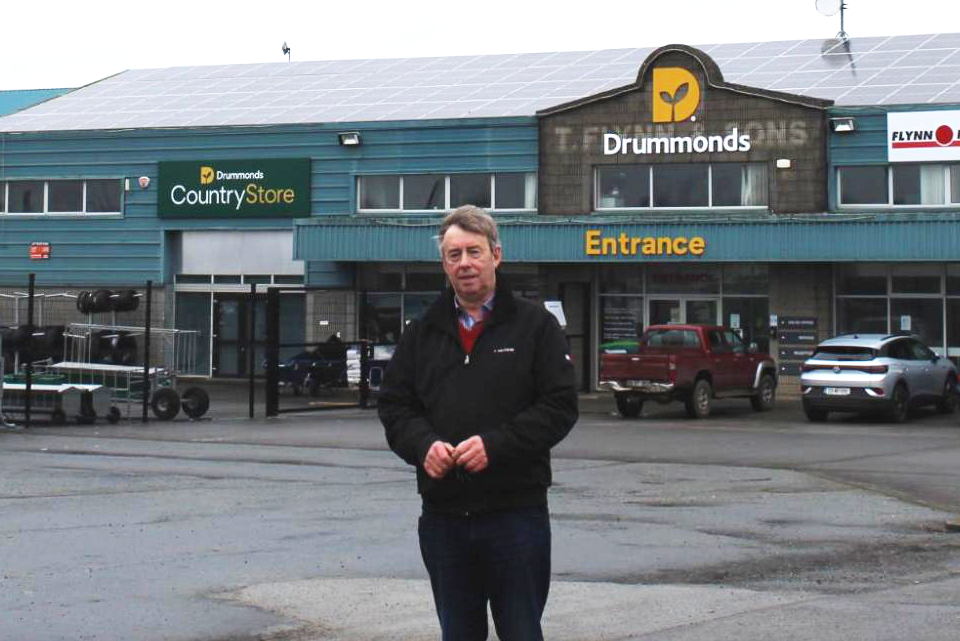By Paddy Mathews, Mullingar SEC
Across the Irish landscape, a quiet revolution is taking place, one that promises to turn waste into wealth and help combat climate change. Anaerobic digestion is a natural biological process that occurs when organic matter, such as food waste, agricultural residues, and wastewater, is broken down by microorganisms in the absence of oxygen. This process produces biogas as a byproduct which can be captured and can be used for various energy needs. The leftover material, called digestate, can be used as a very effective organic fertiliser.
Being a county with a strong agricultural base, Westmeath has significant potential for anaerobic digestion as part of its efforts to combat climate change and to find new sources of renewable energy. At present, there are no anaerobic digestion facilities in Westmeath. As of 2019, there were only 12 in Ireland with a plan to have 130 in place by 2030.
However, one man in Westmeath is changing this. In 2020, Thomas Flynn from The Downs, through his company Bio Agrigas, received planning permission from Westmeath County Council to develop an anaerobic digestion plant in The Downs, Co. Westmeath. Organic waste material will be sourced locally for the digestion plant and the two main outputs of the digestion process will be biomethane and a digestate which is an organic fertiliser. A gas pipeline will be constructed from Mullingar to The Downs in order to supply the biomethane into the national gas grid. This means that all the houses and businesses along the route will be able to connect to the gas grid, which is a huge opportunity for the area. The digestate will be sold as a highly effective and organic fertiliser.

So what are the benefits of anaerobic digestion?
Benefits of Anaerobic Digestion
1. Renewable Energy Generation:
Anaerobic digestion is a powerful source of renewable energy, in the form of biogas. According to the Sustainable Energy Authority of Ireland (SEAI), anaerobic digestion has the potential to contribute significantly to Ireland’s renewable energy targets, reducing reliance on fossil fuels. Biogas can be used for electricity generation, heating, and even as a fuel for vehicles.
- Waste Reduction and Recycling:
At a time when we are struggling with the challenges of excessive waste, anaerobic digestion provides us with a practical solution. By diverting organic waste from landfills, where it would decompose and release harmful greenhouse gases, anaerobic digestion not only produces energy but also mitigates the environmental impact of waste disposal. Once brown bins are properly filled by householders, the organic waste from these bins can also be used in anaerobic digesters.
3. Agricultural Benefits:
The nutrient-rich digestate that is generated as a byproduct of anaerobic digestion can be used as a potent organic fertiliser. This is a great example of the circular economy, whereby nutrients are recycled back into the soil, promoting sustainable agriculture and improving soil health. Instead of viewing organic waste as a problem, this process transforms it into a valuable resource. Teagasc has undertaken research that demonstrates the agricultural benefits of using digestate as a fertiliser which in turn reduces the need for synthetic fertilisers. This will offer a practical, affordable and organic fertiliser for farmers in Westmeath who are struggling with the rising cost of fertiliser.
Combatting Climate Change
Anaerobic digestion can also help us to combat climate change. By converting methane into energy, anaerobic digestion prevents its release into the atmosphere, thereby reducing its impact on global warming. Methane is a potent greenhouse gas and is a major contributor to climate change.
The more anaerobic digestion plants we build in Ireland, the closer we will move towards a decentralised and sustainable energy solution. Ireland is committed to developing a diverse range of renewable energy sources and anaerobic digestion is a key part of this solution, helping us to transition to a low-carbon future.
As Ireland strives to meet its climate goals and build a sustainable future, anaerobic digestion will be a key player in this transition. By generating renewable energy, reducing waste, and enriching agriculture, anaerobic digestion embodies the principles of sustainability. As we tackle the challenges of climate change, Ireland’s and Westmeath’s embrace of this green technology signals a commitment to harnessing nature’s power for a cleaner, greener tomorrow.
If you want to know more how you can make a change locally and learn about some local renewable energy initiatives, you can find out more on the Mullingar Sustainable Energy Community website at www.mullingarsec.ie

